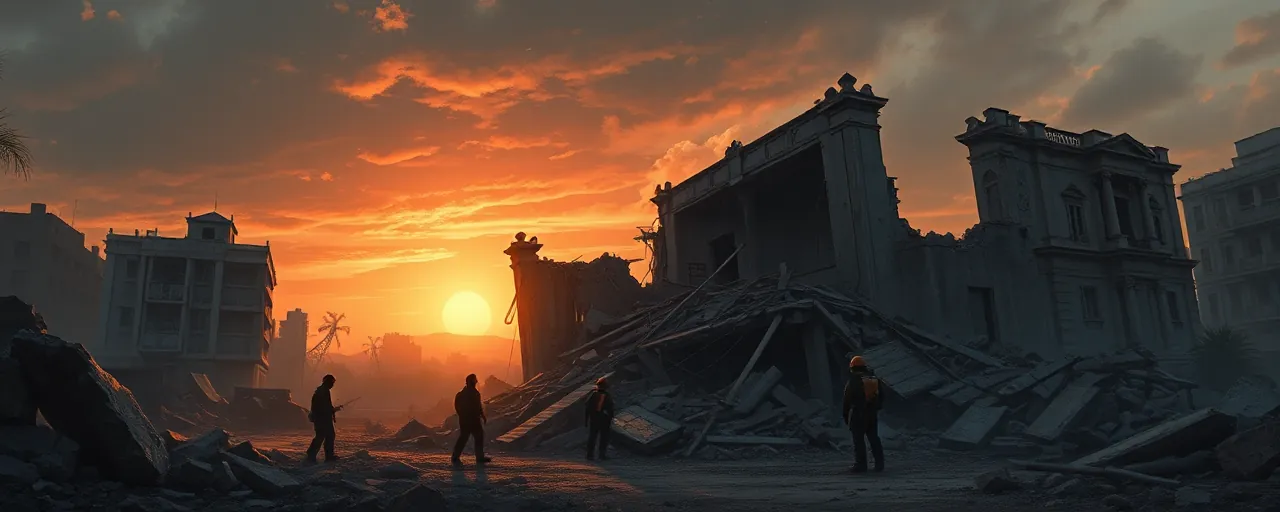A Heartbreaking Wake-Up Call
The roof collapse at Jet Set nightclub in Santo Domingo wasn’t just a tragedy; it was a glaring signal of systemic failure. Over 200 lives were lost, including American citizens, in a disaster that could have been prevented. The vibrant nightlife of the Dominican Republic, a magnet for tourists and locals alike, turned into a scene of devastation, leaving families shattered and communities reeling. Secretary of State Marco Rubio’s call with President Luis Abinader underscored America’s grief and solidarity, but words alone won’t fix what’s broken. This incident demands more than condolences; it calls for action.
What happened at Jet Set isn’t an isolated incident but a symptom of deeper issues plaguing the Dominican Republic’s infrastructure. For too long, lax enforcement of building standards has put lives at risk. While some point fingers at local corruption or bureaucratic inertia, the real issue is a failure to prioritize safety over short-term gains. The United States, as a steadfast partner, has a stake in ensuring its citizens and allies are protected abroad. Ignoring this tragedy’s root causes would be a betrayal of those who lost their lives and those still at risk.
The Cost of Neglect
Building safety in the Dominican Republic has been a concern for decades, yet progress remains frustratingly slow. The Ministry of Public Works oversees regulations like Seismic Regulation R-001, designed to protect against earthquakes, but enforcement is spotty at best. Informal construction practices, especially in urban hubs like Santo Domingo, exacerbate vulnerabilities. The Jet Set collapse exposed these gaps in stark relief, with reports suggesting the venue operated without proper inspections. This isn’t just a local problem; American tourists, drawn to the island’s nightlife, deserve to know their safety isn’t being gambled away.
Contrast this with the swift response from Puerto Rico, where Governor Jenniffer González Colón deployed firefighters and forensic experts to aid rescue efforts. Their expertise saved lives and highlighted the kind of regional cooperation that works. Puerto Rico’s history of battling hurricanes like Maria in 2017 has honed its disaster response, offering a model the Dominican Republic could emulate. Yet, some voices argue that international aid risks fostering dependency, diverting focus from local accountability. That critique misses the point: collaboration strengthens, not weakens, a nation’s ability to stand on its own.
America’s Role in Rebuilding Trust
The United States has long championed its partnership with the Dominican Republic, rooted in shared values and mutual prosperity. From $200 million in loans for small businesses to USAID’s investments in education and clean energy, America’s commitment is tangible. Secretary Rubio’s conversation with President Abinader reaffirmed these ties, emphasizing joint efforts in disaster response and security. But this tragedy calls for a sharper focus: helping the Dominican Republic overhaul its building codes and enforcement. Americans traveling abroad, whether for leisure or business, need assurance that their safety isn’t left to chance.
Skeptics might claim that pushing for reforms infringes on sovereignty, insisting local governments should handle their own affairs. That argument falters when lives are at stake, especially those of U.S. citizens. The Dominican Republic’s nightlife, a cornerstone of its economy, thrives because of tourism, much of it American. Ensuring venues like Jet Set meet rigorous standards isn’t meddling; it’s a practical necessity. Historical ties, from trade agreements to joint hurricane relief after Georges in 1998, show that cooperation yields results. Now is the time to double down.
A Path Forward
This tragedy doesn’t just mourn the past; it demands a better future. The Dominican Republic’s government has pledged to align with frameworks like the Sendai Framework for Disaster Risk Reduction, but pledges mean little without action. Stricter building codes, regular inspections, and accountability for violations are non-negotiable. The United States can support this by sharing expertise and resources, as Puerto Rico did in the collapse’s aftermath. Nightclubs and entertainment venues, vital to Santo Domingo’s culture and economy, must lead the way in setting a higher standard.
The pain of Jet Set’s collapse lingers, but it also lights a fire for change. America stands with the Dominican Republic, not just in grief but in resolve. By championing stronger safety measures, we honor the fallen and protect the living. This isn’t about pointing fingers; it’s about building a future where no family endures such loss again. The ties binding our nations are strong enough to weather this storm, but only if we act with purpose and conviction.
